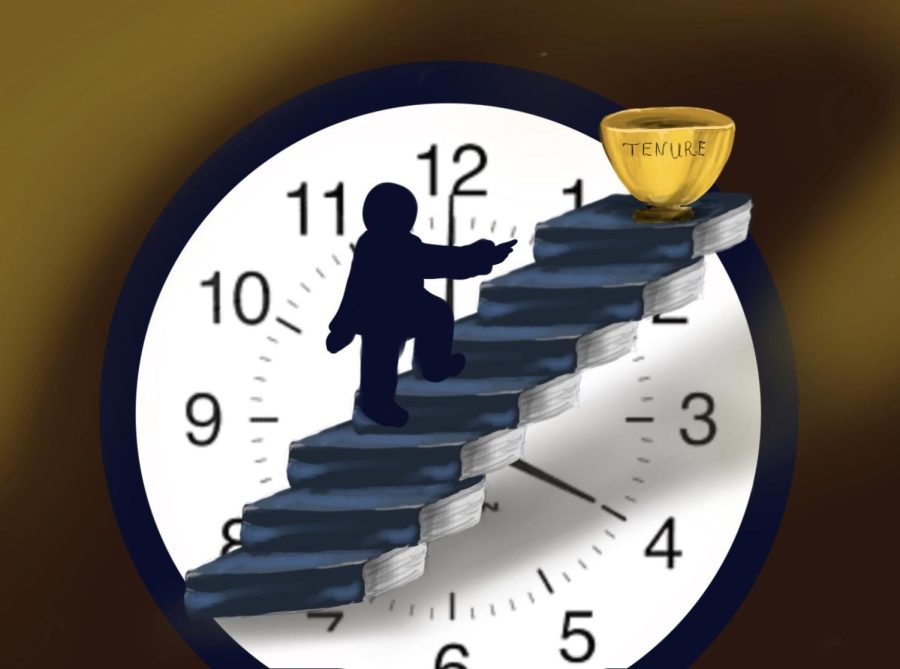Academic tenure benefits everyone
February 1, 2023
In 2022, Texas Lt. Gov. Dan Patrick announced his plan to end academic tenure for all future hires at public universities. Following Patrick’s announcement, UT’s president Jay Hartzell reiterated UT’s support of tenure, stating it was beneficial to students and professors alike.
Tenure has been a controversial issue since it first became a policy in 1940. Many professors support tenure. Some students and politicians are skeptical about its implications and risks. This is partially because some key concepts are misunderstood.
Tenure is essentially a job protection status earned by professors after they have been evaluated on the research they’ve conducted and the impact they’ve made in the classroom.
Tenure is not easily earned, and it is assumed that those who become tenured professors will produce groundbreaking research. This means that tenured professors are equipped with the most recent knowledge of the world and can take more risks in the research they conduct. In other words, no topics are off the table.
Sonia Paban, an associate professor of physics, said being granted tenure is quite rigorous and does not ensure indefinite job security.
“They decide if you have promise, if the work you have done so far is a good indication that in the future you will be productive and will contribute to research,” Paban said. “(They also see) if you have been a good teacher or not a good teacher. Even if you are promoted at the University … every six years, there is an evaluation of the work that you have done. Even though you have tenure, if you have done nothing for six years and you have been an awful teacher you can be evicted. Basically, your job can be terminated.”
Although tenure is difficult to obtain, some students still express concern about tenure taking away from their education because it encourages an emphasis on research. In reality, tenure benefits students by ensuring the most up-to-date education provided by skilled researchers.
Kristina Zvinakis, an associate professor of instruction in business, is not on the tenure track.
“We are a tier-one research institution, thus research expectations are high for tenure-track faculty in all colleges,” Dr. Zvinakis said. “So, the expectation is that our faculty will publish highly-ranked journals in their field. (The publication) process is difficult because these journals generally have low acceptance rates and they have rigorous review processes.”
There are valid concerns from students regarding tenure. Some worry that tenure enables professors to be insensitive or inappropriate towards students without any accountability. It might even allow them to be lazy or preoccupied with their research and unable to tend to students.
Government senior Emma Breckwoldt said she has concerns that the level of security tenure provided to professors is harmful.
“When professors reach that level that is tenure, they then become almost untouchable,” Breckwoldt said.
Breckwoldt raises an important point. Students attend college with the expectation that the professors are there for the primary reason of teaching. Yet, tenure and the subsequent research actually improves the level of education that students receive because it ensures that students are exposed to a wide array of topics with various perspectives.
Overall, the concerns regarding tenure are valid, yet lack the power to outdo the benefits of it. Tenure protects both faculty and students. It broadens the type of knowledge that can be taught and ensures the environment at UT is rigorous, the education is top-tier, and the instruction is diverse.
Lawrence is a social work senior from Austin, Texas.











